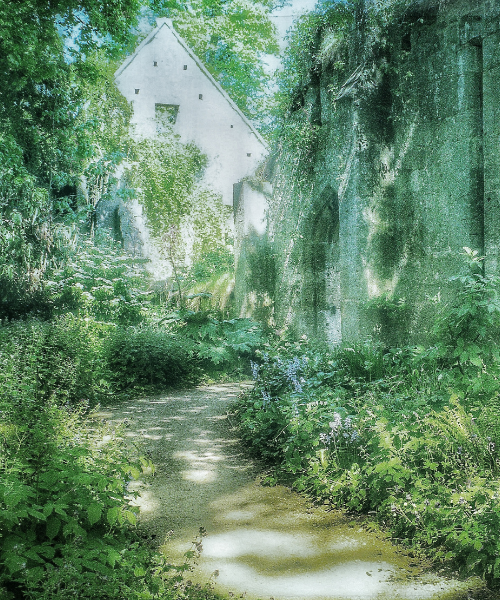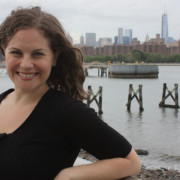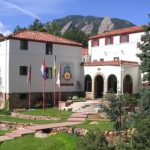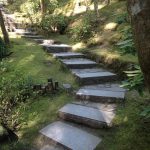Thursday
Buddhism, Psychedelic-Assisted Therapy and the Spiritual Path: An Interview with Dr. Sara Lewis
by Jillian Johnson
Register for the Buddhism, Psychedelic-Assisted Therapy and the Spiritual Path One-Day Retreat
One of the five main precepts in Buddhism is to avoid intoxicants, and it is clear that the use of substances can lead to spiritual bypassing. Yet many renowned practitioners in the West have talked openly about psychedelics as a catalyst to spiritual awakening that led them to the Dharma. Today, we sit down with Dr. Sara Lewis, co-founder of the Memoru Center for Visionary Healing Arts in Boulder, Colorado, and the Center for Psychedelic Studies at Naropa University, where she also served as an associate professor, and author of Spacious Minds: Trauma and Resilience in Tibetan Buddhism, to discuss the use of psychedelics in therapy and along one’s spiritual journey. In this interview, Sara provides us with her personal and professional perspective while considering how such practices may intersect, or not, with the Buddhist path.
Dr. Sara Lewis will hold an online mini-retreat, Buddhism, Psychedelic-Assisted Therapy and the Spiritual Path, through Shambhala Online on July 20, 2025. Click here to learn more and to register.
Jillian: Hi Dr. Lewis, thank you so much for being here with us today to share more about your work and knowledge in the field of psychotherapy and the implementation of psychedelics in mental health settings and spiritual pursuits.
Would you please tell us a little bit about your ‘why’ behind your work in mental health and how it expanded into the area of psychedelic-assisted therapy?
Dr. Lewis: I have long been interested in the mind: concepts of mind, the beauty and the challenges of the mind, and what it means to be human. As an anthropologist of religion and a psychotherapist, I am also deeply interested in how our connection to the divine changes across culture. In one way or another, I have been involved in the field of psychedelic studies for the last twenty years, yet it is more recent that psychedelic therapy has become more mainstream. As a Buddhist, I continue to see my clinical work as a skillful means to work with suffering in the world.
Jillian: How fascinating. We heard you opened a new clinic? Congratulations and please tell us more!
Dr. Lewis: Yes! Memoru Center for Visionary Healing Arts is a contemplative-based psychedelic training institute and community clinic where we offer legal psychedelic therapy. We can accept out of state clients who wish to travel to Colorado for a psilocybin experience. The Memoru clinic has a strong connection to Naropa University, where most of the cofounders have either worked as faculty or completed their studies.
Jillian: That’s very exciting, congratulations again! Speaking of legal psychedelic therapy, what do you feel are the current social and political climates surrounding the utilization of substances (primarily psilocybin and MDMA) in controlled mental health and spiritual settings? Are you noticing more or less acceptance in your typical day-to-day professional and personal interactions than in recent years?
Dr. Lewis: In general, there is a lot of interest and excitement for the therapeutic use of psychedelics. Many people understand that among veterans, abuse survivors, and others with PTSD, our standard treatments often fall short. As well, there is deep potential for plant medicines and psychedelics for those navigating the end of life. At Memoru, we will have a family program that aims to work with entire families–this might be when one person is at the end-of-life, navigating the post-partum period after birth, couples work, or a veteran returning home. When psychedelic care is done in a way that is slow, intentional and safe, I think there is significant support. At the same time, our basic health care infrastructure is not really set up to easily make this type of work accessible. Psychedelics do not fit easily into a capitalist system and without sounding too conspiratorial, the global Big Pharma system has many reasons to hinder the kind of paradigm shift many of us interested in psychedelic-assisted therapy are hoping for. Still, I believe that most of us yearn for change. With psilocybin now legal in various capacities in Oregon, Colorado and most recently, New Mexico, I believe in the next 5-10 years we will see a significant shift in accessibility of these modalities in North America and around the globe.
Jillian: Thank you so much for this thoughtful response, Sara. It is comforting to know that all areas of support are being explored for those seeking treatment and their families. Do you feel momentum and public support will eventually result in the integration of psychedelics into mainstream healthcare?
Dr. Lewis: Absolutely. And this could go the other direction as well if we do not take seriously the ethical responsibility to work with these medicines in a safe way. Many cultures across the world understand plant medicines to be living beings with sentience. They shouldn’t be “taken” in an extractive way. If we can relate with the cultures ethically who are stewards of these medicines, and collaborate and learn from them, I think we may have good results. For society as a whole to open up to them, I think we are in a critical period of needing to demonstrate that as a human society we can be trusted with these powerful agents. It’s up to us! But I feel the plants and fungi also want to help.
Jillian: I love your statement “…I feel the pants and fungi also want to help” and the care you show towards our Plantae and Fungi kingdoms. Have you noticed an increase in the number of patients and clients willing to consider psychedelics as part of their treatment plan for depression, anxiety, addiction, PTSD, etc.?
Dr. Lewis: Yes, very much so. Many people have earnestly tried conventional therapies without much relief. There are also many people seeking to work with suffering within the human condition in a way that honors and deepens their spiritual path. So there’s sort of a question about whether the work is “mental health work,” “spiritual work,” or something else. There is also a lot of joy, beauty and connection, something that may not be fully honored in a traditional treatment plan that tends to focus rather narrowly on the eradication of symptoms.
Jillian: It sounds like a very integrative approach that is catered to each individual’s unique needs and requirements, which is still lacking in many areas of healthcare. Would you tell us more about a situation(s) where the assistance of psychedelics, in a therapeutic application, aided a client in a breakthrough (mental, emotional and/or spiritual) that may not have occurred, or may have taken longer to occur, with more traditional mental health practices? Are you able to expand on the experience, at least from your perspective, and how that felt?
Dr. Lewis: I have had so many clients with intergenerational and ancestral experiences, even when they weren’t necessarily seeking that out. This has looked like deeply experiencing and seeing the ways that an ancestral burden has been passed down through the ages, visitations from elders who have passed, and sometimes a deep experience of connection and homecoming into one’s ancestral lineage. This happens so frequently that I myself, have embarked on a formal process of Ancestral Lineage Healing over the past year to better learn to work with my own spiritual lines. We will have more on this in the mini-retreat!
Jillian: This sounds not only incredibly interesting, but heart-warming as well. What a beautiful experience for both you and your clients. I am intrigued to hear more at the mini-retreat! In which situation(s) do you recommend someone not take psychedelics or partake in psychedelic-assisted therapy if it is a path they are interested in pursuing for their mental health and/or spiritual journey?
Dr. Lewis: These agents can be very powerful and it’s important to know if it’s the right time. I receive many referrals for people who have had negative even traumatic experiences resulting from psychedelics. Beyond contraindicated conditions like psychosis and mania (though even those who have these histories may be able to work in psychedelics under certain conditions), I wouldn’t recommend jumping into working with them if things aren’t stable enough to be able to accommodate potentially big and sometimes disruptive shifts. Sometimes these medicines work through disruption and dissolving: this could be to harmful patterns, misperceptions, ego-clinging, itself, or even the dissolving of relationships, career or other major disruptions.
Jillian: This is a very strong point to consider. Thank you for mentioning ‘being ready’ for shifts. While it is often said “The only constant change,” it is important to remember to be as grounded as possible before inviting a powerful catalyst for said change. What would you recommend as some of the “should” and “should nots” before holding a psychedelic session in terms of choosing an appropriate environment, monitoring one’s current mental state, integrating other practitioners and/or professionals, etc.? In a sense, what would you recommend in terms of setting yourself up for an enlightening experience?
Dr. Lewis: Most people do not need to work with a psychedelic therapist or clinician to have a safe and meaningful experience. This was recognized in the state of Colorado that has approved personal use of psilocybin mushrooms for anyone 21 years and over. Colorado also allows for individuals to embark on training as facilitators who do not hold a clinical license, again recognizing that many people can be trained to hold space for someone else ethically and with care. However, if the intention is really to engage in therapeutic work, it would be important to seek out a trained and licensed clinician. Sometimes it can be hard to really discern whether the work is “therapeutic” or whether it is “spiritual.” But this isn’t a new problem. Many cultures around the world do not separate the paths of healing and spirituality. What is most important is to feel that the setting and the practitioner is slow, intentional, and rooted in some kind of practice lineage. I would not get involved with anyone who doesn’t seem to have any mentors, elders, or community of accountability.
Jillian: Very true, consistent and quality integrative care that takes into account physical, mental, spiritual, and emotional health of an individual is a hurdle that seems to continually appear, at least in American culture. On a more casual note, if you were talking freely (perhaps in a bar) to a captivated audience, what would your elevator pitch be when introducing a metaphysical discussion on the topic of psychedelics in therapy or on one’s spiritual journey?
Dr. Lewis: I probably wouldn’t make one. A person really needs to feel the call, so to speak, on their own! If you listen and hear the call, however, many of us all across the globe would love nothing more than to dive into that conversation!
Jillian: What a conscientious approach. Wait for the invitation. And now for our final interview question, what has the use of psychedelics done for your personal spiritual growth? Do you have any stories you’re willing to share with us?
Dr. Lewis: Yes, but I will save these for the mini-retreat. Hope you can join!
Thank you, Sara, we’re looking forward to it! Myself and Shambhala Online thank you for taking the time to answer our questions about these exciting advances in patient/client care. You have touched on many dynamic aspects regarding the use of psychedelics in client care and we are eager to dive deeper on July 20!
Dr. Sara Lewis is Co-founder of Memoru Center for Visionary Healing Arts, a psychedelic clinic and training institute in Boulder, Colorado. She served as Associate Professor at Naropa University in Buddhist-Informed Counseling, where she also co-founded the Center for Psychedelic Studies. Sara is author of Spacious Minds: Trauma and Resilience in Tibetan Buddhism, an ethnographic study of mind, memory and recovery from collective trauma in the Tibetan exile community. She teaches in Shambhala on the topic of Buddhism and psychedelics, and has also served in a number of leadership roles, including a term on the Interim Shambhala Board.
Entries filed under Community Articles
Marpa House Invitation – HIGHLIGHT
Living community for meditation practitioners invites applications from new members by Jessyca Goldstein “Marpa House is an extraordinary resource. Whether you are a long time practitioner or relatively new to contemplative discipline, Marpa House provides a unique, supportive group living situation in Boulder. Practice and daily life are skillfully ... continuePosted July 2, 2017 by CGH
Midsummers Past – HIGHLIGHT
Celebrating summer, sunshine, and outdoor fun with family and friends by Nyingje Sheltri Over many years, the Shambhala Buddhist community has adopted a tradition of celebrating a special day at the change of each season. These are referred to as “nyida” days, based on the Tibetan words nyima ... continuePosted June 22, 2017 by CGH
Town Hall in Seattle – HIGHLIGHT
“Great to get together and be heard” from the Seattle Shambhala Center Center Director Michael Busby convened our first Town Hall this spring. It is the first of an ongoing quarterly schedule, which he started to bring the sangha together and create an avenue for open communication. Michael ... continuePosted June 12, 2017 by CGH
Claudia Chender Wins Election – HIGHLIGHT
Canadian leader raised in the Shambhala Buddhist community wins a seat in the Nova Scotia House of Assembly by editors of the Shambhala Times This week in Halifax, Claudia Chender, a lifelong Shambhala Community member, was elected as a New Democratic Party (NDP) representative to the provincial legislature ... continuePosted June 8, 2017 by CGH
European Donor Group – HIGHLIGHT
Members of the European Donor Group gather in Bavaria, Germany by Hermien Rodenburg At the end of April, the European Donor Group (EDG) got a taste of the Bavarian Alps in Germany. We met there at the family home of Veronika Bauer, the current chair of the EDG. So, ... continuePosted June 3, 2017 by fredvanwelsem
From Ukraine to Vermont 2 – HIGHLIGHT
The Journey of a Shambhala Teen, Part Two of Two by Cara Thornley Shambhalian teen Dali Kapanadze was already experiencing a major life changing event, the Ukranian Revolution of 2013, in which she was participating with the permission and support of her parents. The second and more ... continuePosted May 31, 2017 by CGH
From Ukraine to Vermont 1 – HIGHLIGHT
The Journey of a Shambhala Teen, Part One of Two by Cara Thornley How Dali Kapanadze got from Ukraine to Vermont is a story of auspicious coincidence, parental aspirations, civil unrest, untimely death, Dali’s inspiration, and immense sangha generosity taking the form of both financial and personal support. In ... continuePosted May 29, 2017 by CGH
The Rough Edges of Basic Goodness – HIGHLIGHT
Contemplating inclusiveness, social difference, and our organization’s prevailing culture by Michaela McCormick The Portland Shambhala Center’s Listening Team, led by Mark Douglass, met recently to review the latest round of its interviews of a wide variety of our past and present members to learn the ways in which ... continuePosted May 23, 2017 by CGH
Peace Now! – HIGHLIGHT
Preparations for a symposium with the Sakyong in Vienna by Michael Anderson Taste might be the word best attributable to a Viennese evening of food, drink, and cultural performance. That was indeed the case on the evening of May 5th, as local sangha and guests of the Vienna ... continuePosted May 19, 2017 by Michael
More Visitors for the Gesar Centre – HIGHLIGHT
An update of progress on Gesar Fund projects and community building near Yushu by Gesar Fund staff members As in 2015-2016 the past winter of 2016-2017 was extremely severe on the altiplano of Yushu. Especially for the elderly, it was possible to leave the house only in the last ... continuePosted May 15, 2017 by CGH
Growing Enlightened Society – HIGHLIGHT
A new project in organic gardening and permaculture methods at Ziji Garden by Audrey Dallamaggiore and Simon Bertin Last November, Dechen Chöling hosted an Enlightened Society Assembly. During this ten-day program, participants were offered the chance to apply the teachings to a practical project around the land center: they ... continuePosted May 1, 2017 by Audrey Dallamaggiore
Strong Ground for Growing Brave – HIGHLIGHT
An invitation to join in community conversations about parenting, and about including children in Shambhala life and culture by Rebekka Henriksen “We are actually building a Buddhist world so that our children can grow up in an atmosphere that is right and good. It’s revolutionary and represents a fantastic ... continuePosted April 25, 2017 by CGH
Shambhala Household Experiment – HIGHLIGHT
Reflections on the household culture and Shambhala experience of Boulder’s Marpa House by Michael Schneeweis While many captivating themes run through the Shambhala teachings, the notion of cultivating a wakeful household stands out as a particularly important aspect of the overall vision of our lineage. I feel incredibly ... continuePosted April 9, 2017 by CGH
I Can Be Clearly Now – HIGHLIGHT
A story about learning to see, and be, with directness and true clarity by Lisa Freedman “I’m going to the Met tomorrow. The Metropolitan Museum of Art. I will be seeing it for the first time.” A tweed-jacketed gentleman winked as he said this, and stepped out ... continuePosted March 28, 2017 by CGH
More Motorcyle Meditations – HIGHLIGHT
Pam Linnell, who retires this year from Karmê Chöling, shares a few thoughts about the connection between motorcycle riding and meditation, and her service as Chagdzo at KCL. interview by Cara Thornley Q. Did you have something you would describe as “The Most Memorable Bike Ride” you have ... continuePosted March 11, 2017 by CGH
![]() RSS feed for the Community Articles category
RSS feed for the Community Articles category
View all posts from authors in Community Articles: jillian_johnson

























